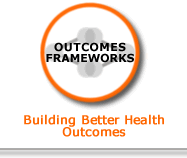Rationale:
Children and young people
Promoting the wellbeing of children and young people is a key tenet of Scottish Governmental policy. The Early Years Framework Part II states that, ‘The largest influences on children in the early years are their parents, with the wider family and the community often also playing a significant role. Improvements in outcomes therefore depend crucially on developing a partnership with parents and communities so that all of the influences on the child are contributing towards positive outcomes.’[1]
Pregnant and new mothers for mental health problems and their infants
Failure to detect and treat postnatal mental health problems may result in a prolonged deleterious effect on the mother-child relationship, and on the child’s social, emotional and psychological development. The relationship between the mother and her partner might also deteriorate.[2, 3, 4]
Source:
-
The Scottish Government (2008). The Early Years Framework Part II.
-
NHS Health Scotland (2008). Health Scotland Commentary on NICE Public Health Guidance 12: Promoting social and emotional wellbeing in primary education. NHS Health Scotland: Edinburgh.
-
NHS Health Scotland (2010). Scottish Perspective on NICE public health guidance 20: Promoting social and emotional wellbeing in secondary education. NHS Health Scotland: Edinburgh.
-
SIGN (2002). SIGN 60: Post natal depression and puerperal psychosis: A national clinical guideline. SIGN: Edinburgh
|



